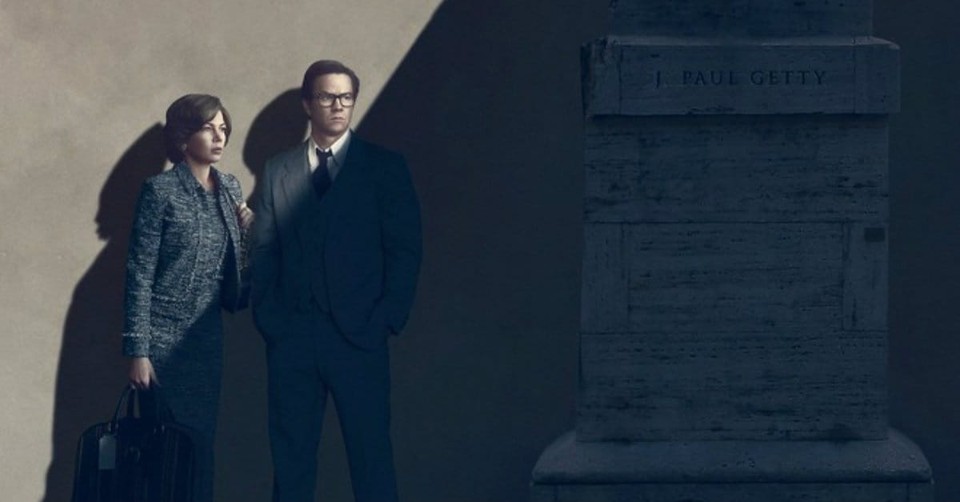All the Money in the World Can't Buy an Oscar


In what should be a gripping tale of kidnapping and ransom, the most memorable part of All the Money in the World remains the dramatic re-casting of Christopher Plummer as J. Paul Getty (replacing the recently disgraced Kevin Spacey) at the eleventh hour. 2.5 out of 5.
Synopsis
J. Paul Getty (Plummer) is the richest man who's ever lived. After decades of innovation and shrewd business deals, the oil tycoon was known for prioritizing capital profit over investment in his own family. But when his beloved grandson Paul (Charlie Plummer) is kidnapped by Italian Mafia members, the depth of his stark coldness is truly laid bare for his family, and all the world, to see.
Despite the desperate pleas from Paul's mother Gail (Michelle Williams) to pay the $17 million ransom demands for the teenager's life, Getty balks - claiming such a sum would be impossible and unwise. And even as the ransom demands are lowered time and again, he continues to refuse. "To be a Getty is an extraordinary thing," he maintains. But clearly the meaning of the word extraordinary means something different to the towering titan than it means to his impoverished and brokenhearted daughter-in-law.
What Works?
The subject matter is inherently fascinating. The Gettys are surreally powerful and wealthy - and it's interesting to observe that level of power from the perspective of Gail, the ex-wife of Getty's firstborn son, who is trapped between the outside and the innermost circle. Williams and Plummer both offer hearty performances, and there are some tense, high-stakes moments along the ride.
What Doesn't?
Despite the wild, real-life saga upon which it's based, this movie lacks the spark to be called great, or even particularly good. Nothing stands out about the music, editing, or camerawork. Veteran (and sometimes masterful) director Ridley Scott offers us little that's fresh, new, or thrilling. At most, the film is lit very dark and moodily, and the script offers us a strange, disconnected-feeling portrait of Getty himself. The character has no true arc to speak of; it almost feels like his scenes could be viewed in any order to the same effect.
Yes, he is a cold miser. Yes, he claims to love his grandson. Yet neither his love for Paul nor his love for his money seems to push his character any which way. He acts like a puppetmaster... but with no grand plan. It reels you in for the moment, but after the credits roll, it feels markedly empty and even a little bewildering.
The more thought-provoking, rewarding experience for curious minds might be an evening spent reading about the three-ring-circus that led to the final film. The escapades which resulted in Plummer swooping in to play Getty are a bizarre, engrossing development for the Hollywood machine, and truly unprecedented.
Christian Worldview Elements / Spiritual Themes
Most of the movie's themes and worldview elements touch on love of money, greed, and how power can turn people into monsters. "Everything has a price," the elder Getty insists, when he hears one of his heirs use the term "priceless." "Guns are for people who don't have money," muses another high-ranking member of Getty's inner circle, referencing the way that incredible power and wealth can change even the way one looks at protection and violence. Getty admits that he loves material possessions because they don't disappoint him the way humans do.
CAUTIONS (may contain spoilers)
- MPAA Rating: R for language, some violence, disturbing images and brief drug content
- Language/Profanity: A few uses if the F-word and brief instances of other language such as son of a bi*** or sh**.
- Sexuality/Nudity: A man references “sleeping with concubines.” We see the shadowy aftermath of an orgy of some kind, with partially clothed people asleep or walking around (nothing graphic shown). A teenage boy is approached by women on the street (prostitutes) but they just talk. A statue of a naked man is seen in the background of a shot.
- Violence/Frightening/Intense: The plot centers around a kidnapping, so there are many threats of violence, discussions of violence, and roughhousing. People are shot, hit with blunt objects, and threatened. Blood is seen in several scenes, including a graphic scene where a character’s ear is cut off while the character is conscious and struggling. The paparazzi are shown several times rushing cars and yelling, and a few times individuals are thrown to the ground as the car drives away.
- Drugs/Alcohol: Smoking; people are seen drinking wine several times; a man is discussed as having alcoholism and drug addiction; drug paraphernalia is seen strewn around a room; a man encourages a teenager to drink liquor to dull his senses; ether is pressed against a teenager’s face to knock him unconscious.
The Bottom Line
RECOMMENDED FOR: Those interested in the the drama of complicated, important families, especially the Gettys. Devotees of Michelle Williams or Christopher Plummer.
NOT RECOMMENDED FOR: Those who prefer Ridley Scott’s action films to his dramas. Those sensitive to blood or violence against children. Those who can’t ride the wave of Mark Wahlberg.
All the Money in the World, directed by Ridley Scott, opened in theaters December 25, 2017. It runs 132 minutes and stars Christopher Plummer, Michelle Williams, Mark Wahlberg, Romain Duris, Charlie Plummer, and Andrew Buchan. Watch the trailer for All the Money in the World here.
Debbie Holloway is a storyteller, creator, critic and advocate having adventures in Brooklyn, New York.
Publication date: January 3, 2018
Image courtesy: ©TriStar
Originally published January 03, 2018.







